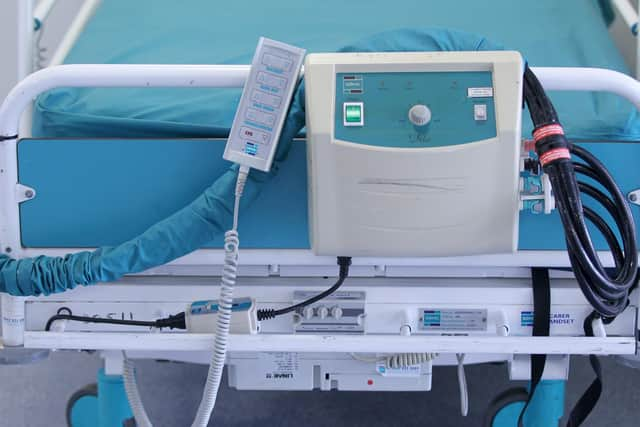'Call to action' at Blackpool Victoria Hospital after 1,200 bedsores are recorded in just one year
and live on Freeview channel 276
It was expected to be the first step in a £750,000 three-year plan to boost standards at the trust, which was criticised by the health industry regulator Care Quality Commission (CQC) last year.
There was concern after 1,222 bedsores were recorded in Blackpool in 2018/19, a number far higher than the 328 recorded at Preston and Chorley hospitals and 57 by the NHS trust in Salford.
Advertisement
Hide AdAdvertisement
Hide AdAnd while bosses said changes have been made to get more accurate data, which has seen the average number of ulcers being recorded every month fall from 102 to 72, they admitted that figure is "still too high and we remain an outlier".


They added: "As a result of these findings, we held a call to action, engaging staff throughout the trust to understand the key drivers impacting patient harm as a result of pressure ulcers."
A 'Pressure Ulcer Collaborative' is now being set-up to "work to reduce preventable harm caused to our patients as a result of pressure ulcers", a hospital report said.
Pressure ulcers, also known as pressure sores or bedsores, are injuries to the skin and underlying tissue. They are mainly caused by prolonged pressure on the skin.
Advertisement
Hide AdAdvertisement
Hide AdThey can happen to anyone, but usually affect people confined to beds or chairs for long periods. They are most common on bony parts of the body like heels, elbows, hips, and the base of the spine.
Mild symptoms include discoloured skin, while more serious signs include blisters and deep wounds that reach the muscle and even the bone.
Senior medics at the Vic, in Whinney Heys Road, have held meetings about the issue, while ward managers were tasked with making sure frontline staff "understand their responsibilities and expectations", documents said.
The collaborative's aims are to work to prevent ulcers through the "safe admission and care planning for patients", to work with ward chiefs to "drive improvement", and to "improve staff education, skills and competency".
Advertisement
Hide AdAdvertisement
Hide AdThe most serious sores will also be treated as 'never events' - which means they should never happen.
The ultimate objective is to axe the number of bedsores by 80 per cent in hospital and 60 per cent in the community within the next 12 months.
Six hospital wards and two community services will be the first to take part, and will be "based on where the greatest impact of improvement will be realised".